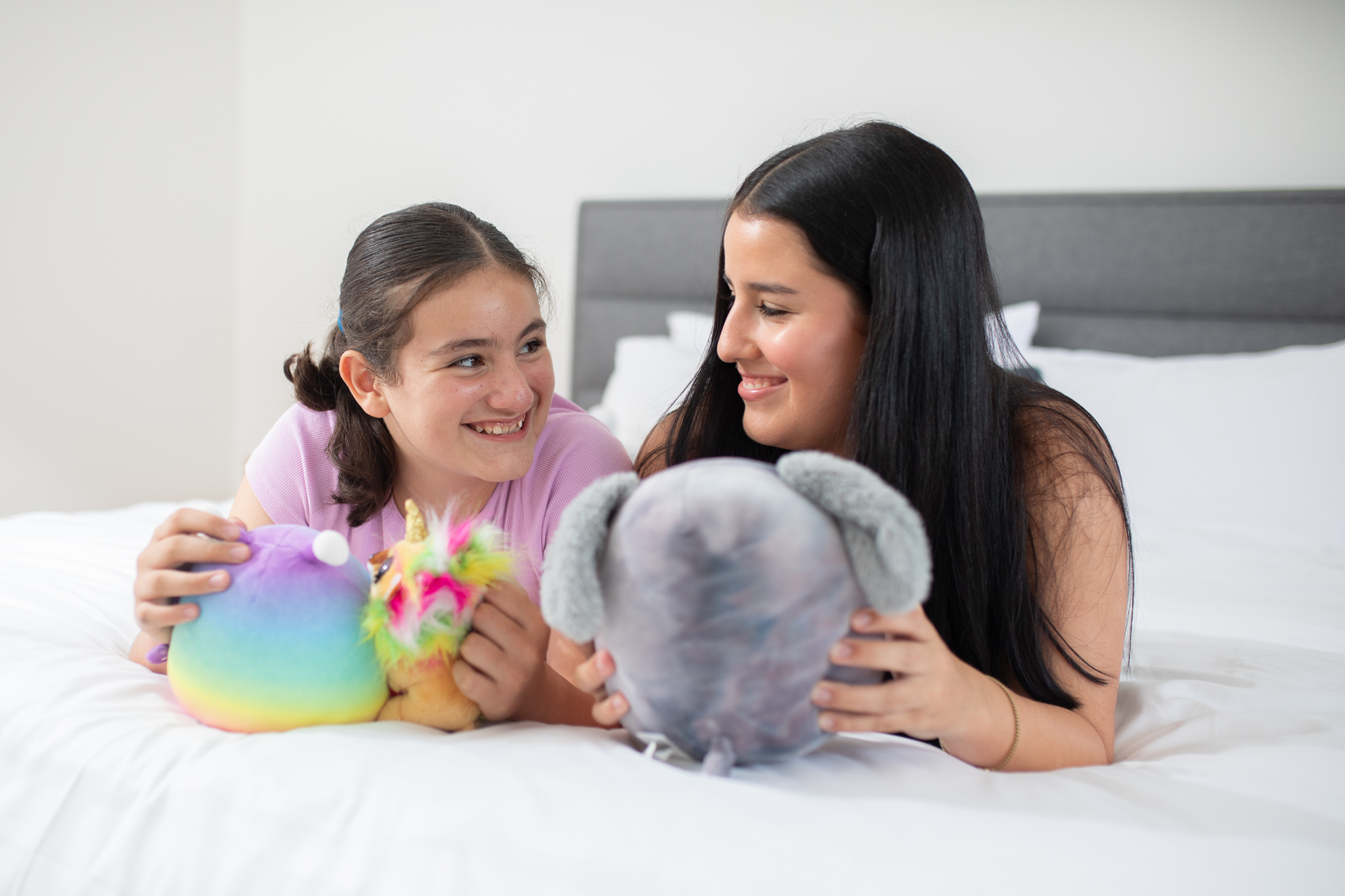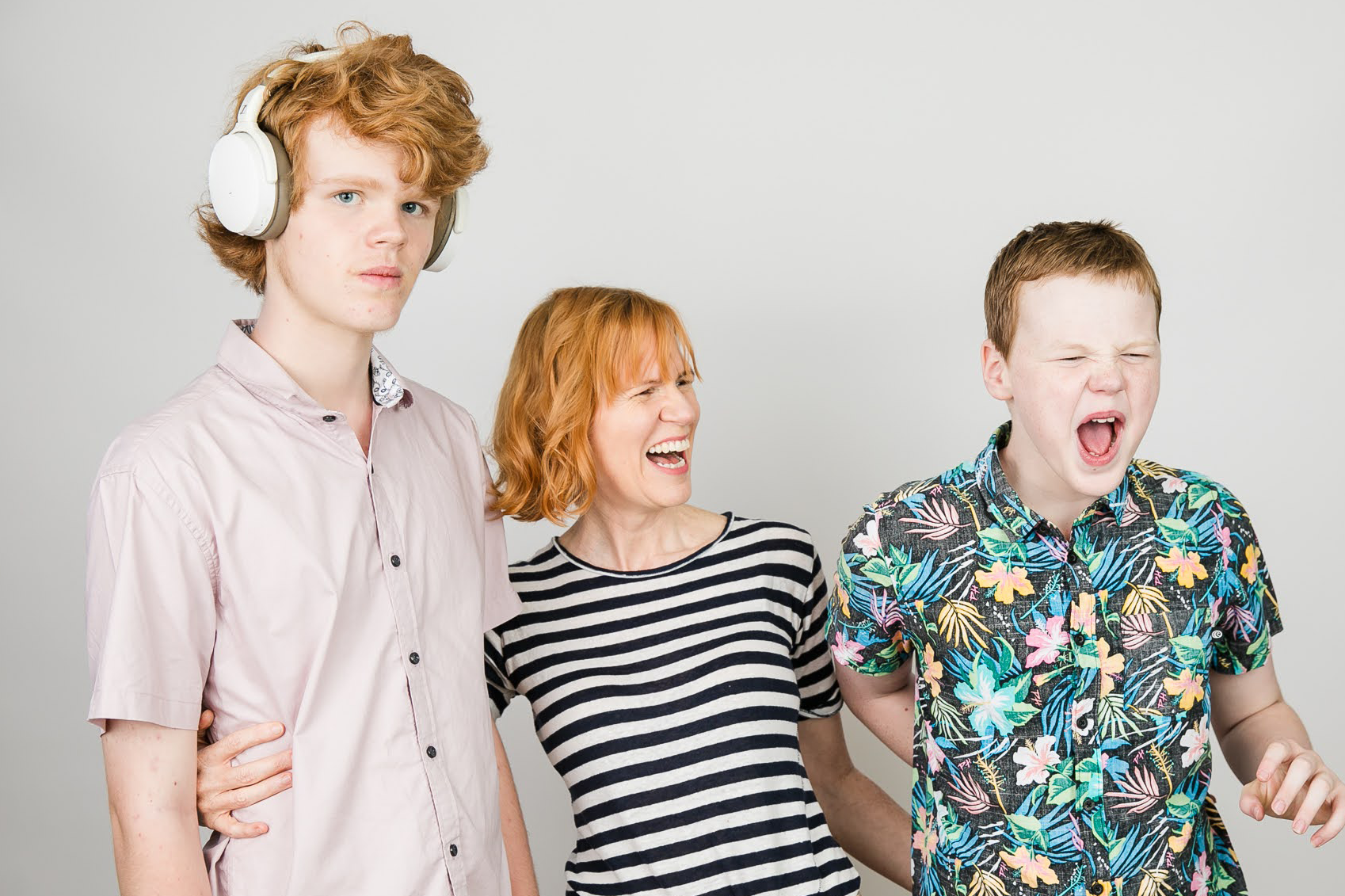Autism diagnosis: Eddie's story

Last month, the Source Kids Spring Magazine featured a range of stories exploring the road to an autism diagnosis and how life evolves in the months and years afterwards.
One of these stories was Eddie's, written by founder of Rise High Therapy Vasily Shchegolev. Now, Vasily and Margarita share an extended version of this story, with stories and advice for other families on the same journey:
Eddie is now five years old and lives in Sydney with his parents, Vasily and Margarita, and his older sister Diana. Eddie’s journey has been distinct due to his diagnosis of Autism requiring Level 3 of significant support and Global Developmental Delay.
Despite the challenges of his diagnosis, Eddie attends KU Preschool twice a week and actively engages in a series of Early Intervention therapies. These include Speech Therapy, Occupational Therapy, and the Early Start Denver Model (ESDM) group therapy. Although the nuances of Eddie’s experience with these therapies are unique, they have significantly contributed to his personal growth.
This growth is evident in his thriving social life. Eddie has forged friendships at preschool and is frequently invited to various birthday parties and social events. A testament to his progress is the recent offer of enrolment from a mainstream catholic school where Eddie’s older sister Diana is currently in year 2.
To gain more insight into Eddie’s success and diagnosis journey, we sat down with Vasily and Margarita Shchegolev. Apart from being devoted parents of Eddie, both Vasily and Margarita are also the founders of Rise High Therapy clinic in Sydney. Their commitment extends beyond parenting and managing a successful business; they are both passionate about autism advocacy and the ESDM therapy they specialise in. Their journey with Eddie has been transformative, introducing them not only to unanticipated challenges but also to countless unforeseen joys and opportunities.
.png)
What prompted you to seek an autism diagnosis for Eddie?
Margarita: Eddie was growing and developing typically until he was 16 months old. With our older daughter, Diana, now eight, we had a foundational understanding of developmental milestones. But at 16 months, Eddie began showing changes that worried both of us. He ceased responding to his name, started lining up his toys with an unusual precision, and became fascinated by repetitive actions, like pressing the same toy button over and over. We observed him tip-toe walking, spinning in circles, flapping his hands, and using my hand to point to or reach for things, rather than pointing himself. Words he once said with ease vanished from his vocabulary. Today, we recognise these as early signs of Autism. But back then, they seemed like characteristics unique to Eddie's development.
Vasily: We shared our concerns with our General Practitioner. To our surprise, we were told Eddie was too young for any sort of diagnosis. The slower pace in his development was attributed to a generalisation that boys simply develop slower than girls. We were further reassured that Eddie didn't exhibit the stereotypical signs of an autistic child, as he still responded to some external stimuli. Their advice was that we were overreacting, perhaps even being "too paranoid," and should consider relaxing or even taking a vacation.
Margarita: Until that point, our family had limited knowledge about Autism. It was through an unexpected source that we first got a real insight. Before Eddie's birth, Vasily and I loved watching Australian Survivor. In one episode, Mat Rogers, a renowned Rugby NRL player and a contestant on the show, shared about his son Maxwell's Autism. He outlined the symptoms and signs. Although we listened with empathy then, we never imagined those signs would resonate so closely with our own experiences a couple of years later.
Vasily: Indeed, it was striking how those same signs manifested in Eddie. This revelation drove me to research Autism extensively. Recognising the potential benefits of early intervention, we didn't hesitate to initiate therapies for Eddie as soon as possible. I later reached out to Mat on Instagram, expressing gratitude. His openness about his family's journey with Autism, indirectly, played a pivotal role in guiding our own path.
.png)
How did you and the people around you respond when Eddie first received his autism diagnosis?
Margarita: Eddie was two and a half years old when he was diagnosed with Autism. For any parent, coming to terms with such a revelation about their child can be profoundly unsettling. When we first learned about Eddie's diagnosis, the weight of it felt immense. Yet, the incredible support from our friends and colleagues, whom we informed about Eddie's diagnosis, helped lighten the burden of carrying that weight.
Vasily: Absolutely, and while we were met with a great amount of support, the journey of accepting Eddie's diagnosis was its own chapter. It's a phase every parent has to navigate, and we were no exception. Thankfully, Rita, being a teacher, was somewhat familiar with confronting an Autism diagnosis. This foundation meant we weren't entirely in uncharted waters. I think it's important to mention that our decision to be open about Eddie's condition not only helped with our own acceptance but also introduced us to a community of people who went through the same experience. So, to other parents navigating a similar path, I'd emphasise that openness regarding your child's diagnosis can lead to unanticipated support and valuable resources.
Margarita: Reaching a state of acceptance is a critical step. We found solace and guidance in reputable organisations like Autism Awareness Australia and Raising Children Network Australia. These institutions offer invaluable resources for parents embarking on their Autism journey, helping in crafting the necessary support systems for their child.
Vasily: Indeed, and it was also crucial for us to understand there isn't a "magic cure" for Autism. Instead of seeking questionable and elusive solutions, we focused on scientific evidence-based therapies like Speech Therapy, Occupational Therapy, and the Early Start Denver Model (ESDM). We were fortunate to connect with great and caring specialists who not only offered Eddie the best interventions but also equipped us with tools and insights to better understand and support him.

Has your view of Eddie’s diagnosis changed since you first received it? If so, in what way?
Vasily: Reflecting on 2020, the year we received Eddie's diagnosis, and comparing it with where we stand in 2023, it's clear that our family's journey has been full of learning and personal growth. Post-diagnosis, our immediate response was to immerse ourselves in understanding Autism, its therapeutic approaches, and the significance of early intervention.
Margarita: Having a foundational background in Childhood Education, it felt natural to further delve into the intricacies of developmental therapies. I pursued further studies in Naturalistic Developmental Behavioural Interventions (NDBI) and am now a certified ESDM Therapist. I am pleased that I am able to contribute and share my expertise at our private practice and both University of Wollongong and the University of Sydney.
Vasily: While my original career path was focused on accounting, with over a decade of experience in Insolvency, Eddie's journey inspired a significant change in my career. I'm currently furthering my education in Autism at the University of Wollongong and am also on the pathway to becoming a certified ESDM therapist. I see this as a journey of passion, commitment, and a deep desire to make a positive difference in the Autism community.
Margarita: Together, we founded Rise High Therapy in Sydney, a clinic specialising in the Early Start Denver Model (ESDM) for children under five. This endeavour is not just a professional pursuit; it's a deeply personal mission born out of our lived experiences with Eddie.
Vasily: Operating our own ESDM clinic not only gives us the option to structure our time around Eddie's needs and therapy sessions, but also the privilege to support other families going through the similar paths. There's an indescribable fulfilment in helping others navigate the challenges and joys that come with an Autism diagnosis, making every moment of our work deeply rewarding.
.png)
What advice would you give to parents who may be at the beginning stages of seeking a diagnosis for their child?
Vasily: Recalling my conversation with Mat Rogers, who profoundly impacted our early journey with Autism, he offered a perspective that has since become a guiding principle for me: 'Autism is not a death sentence, but rather an opportunity to look at and attack things differently.' This perspective emphasises the power of mindset.
Margarita: And alongside this mindset, it's also important to listen to your intuition. If something feels wrong, or if you notice your child isn't reaching developmental milestones, take action without delay. However, caution is vital. The landscape of Autism is riddled with therapies that lack scientific backing. Opting for unproven methods not only risks causing harm but also wastes precious time.
Vasily: Openness is also a powerful ally. Margarita and I come from a cultural background, where disability, often hidden behind closed doors, can be seen as taboo. Yet, in Australia, we found a different narrative. By initiating conversations about Autism, we discovered that understanding and support were more abundant than we anticipated.
Margarita: Lastly, I want to say this as a mother to other mothers, remember to cherish every moment with your child. The mystery surrounding Autism's origins and intricacies remains, but one thing stands clear: children with Autism are amazing. They do come with a unique blend of challenges and talents, often revealing abilities that leave us amazed and inspired more than anything. Embrace and celebrate these moments of discovery.
To learn more about Vasily and Margarita and Rise High Therapy, you can visit their website.






